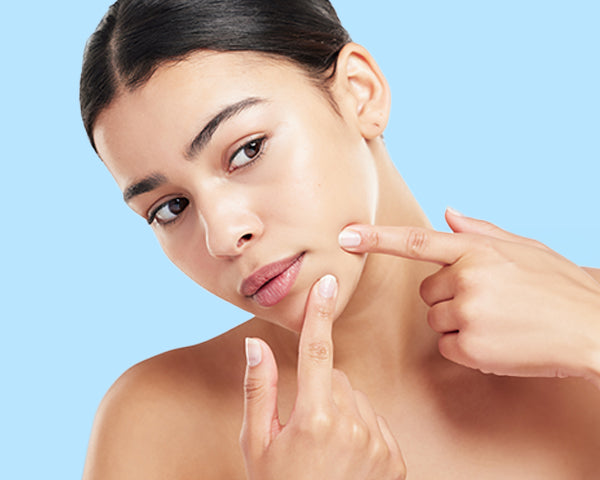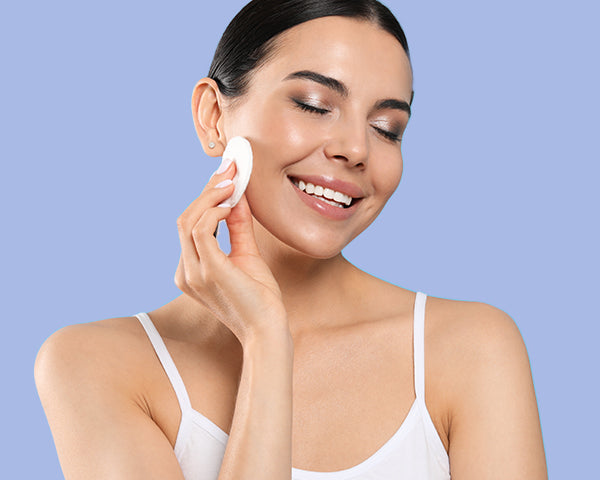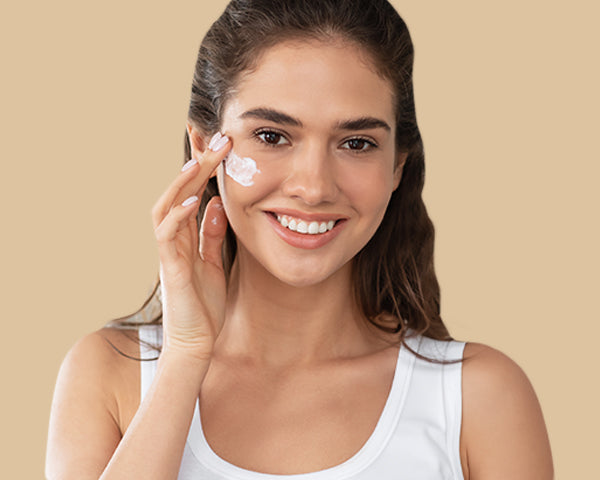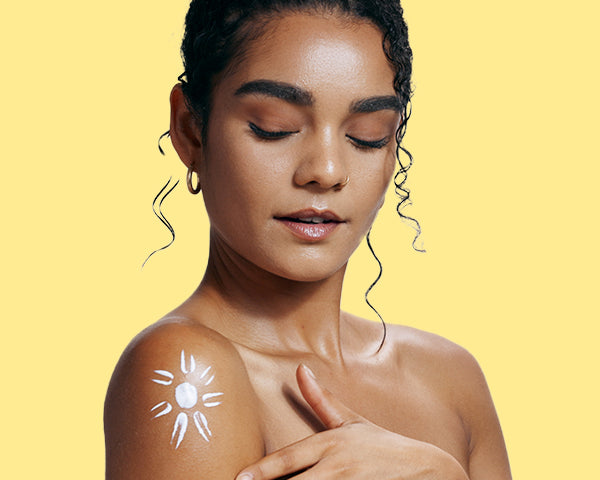In This Blog
- Introduction
- Myth 1: Acne Only Affects Teenagers
- Myth 2: Acne Will Go Away on Its Own
- Myth 3: Junk Food, Chocolate, and Dairy Cause Acne
- Myth 4: Stress Causes Acne
- Myth 5: Acne Is Caused by Poor Hygiene
- Myth 6: Tanning Clears Up Acne
- Myth 7: Popping Pimples Helps Them Heal Faster
- Myth 8: Acne Is Just a Cosmetic Issue
- Myth 9: Natural Remedies Are Always Better
- Myth 10: Moisturizer Makes Acne Worse
- Final Thoughts
Introduction - Clearing Up Acne Confusion
Acne affects millions worldwide, yet myths about its causes and cures still dominate conversations, on social media, in friend groups, and even at beauty counters.
From blaming chocolate to skipping moisturizer, these misconceptions can delay effective treatment and damage your confidence.
Let’s bust 10 of the most common acne myths and uncover the facts that truly support healthy, clear skin.
Myth 1: Acne Only Affects Teenagers
Fact: Acne can appear at any age. Hormonal shifts during periods, pregnancy, menopause, or stress, often trigger breakouts in adults, especially women.
Even “maskne” (mask-related acne) became common during the pandemic.

Good to know: 40% of adult women experience acne well into their 30s and 40s.
Myth 2: Acne Will Go Away on Its Own
Fact: While some mild cases improve over time, many do not. Leaving acne untreated can lead to scarring and long-term skin issues.
Effective treatments, from OTC salicylic acid to prescription retinoids, can make a major difference.
Good to know: Early treatment reduces the risk of permanent damage and discoloration.
Myth 3: Junk Food, Chocolate, and Dairy Cause Acne
Fact: No single food directly causes acne. However, high-glycemic diets (think sugary snacks, white bread) and some dairy products may contribute to breakouts for some individuals.
Good to know: Track your breakouts with a food journal to spot patterns. Everyone’s skin reacts differently.
Myth 4: Stress Causes Acne
Fact: Stress doesn’t directly cause acne, but it does worsen it. That’s because stress hormones like cortisol increase oil production and inflammation.

Good to know: Stress management through sleep, exercise, and mindfulness can benefit your skin (and mind!).
Myth 5: Acne Is Caused by Poor Hygiene
Fact: Acne is not about being dirty. Over-washing or scrubbing too hard can actually irritate the skin and worsen breakouts.
Good to know: Gently cleanse twice a day with a mild, non-stripping acne face wash. No more, no less.
Myth 6: Tanning Clears Up Acne
Fact: While tanning may temporarily dry out blemishes, UV exposure increases the risk of post-acne marks and even skin cancer.
Good to know: Use a non-comedogenic SPF 50+ sunscreen daily, even on cloudy days.
Myth 7: Popping Pimples Helps Them Heal Faster
Fact: Squeezing can push bacteria deeper into the skin, increasing inflammation and the risk of scarring.

Good to know: Spot treatments with ingredients like benzoyl peroxide or salicylic acid are safer and more effective long-term.
Myth 8: Acne Is Just a Cosmetic Issue
Fact: Acne can deeply affect mental health, leading to anxiety, low self-esteem, and even depression.
It’s more than skin-deep, it deserves compassionate care.

Good to know: Studies show visible skin issues significantly affect quality of life. You’re not alone in how you feel.
Myth 9: Natural Remedies Are Always Better
Fact: Natural doesn’t always mean safe. Lemon juice, toothpaste, or garlic can damage the skin barrier and cause burns or irritation.
Good to know: Ingredients like tea tree oil or aloe vera may help, but only when used in properly formulated products.
Myth 10: Moisturizer Makes Acne Worse
Fact: Skipping moisturizer can backfire. Dry skin produces more oil, leading to clogged pores and irritation.
Good to know: Look for lightweight, oil-free, non-comedogenic moisturizers. Hydrated skin heals faster and tolerates actives better.
Final Thoughts: Start with Science, Stay Patient
Misinformation makes acne harder to treat. Now that you know the truth, you can ditch the myths and build a routine that supports, not sabotages, your skin.
Be kind to your skin. Stay consistent. Don’t hesitate to see a dermatologist when needed.

















